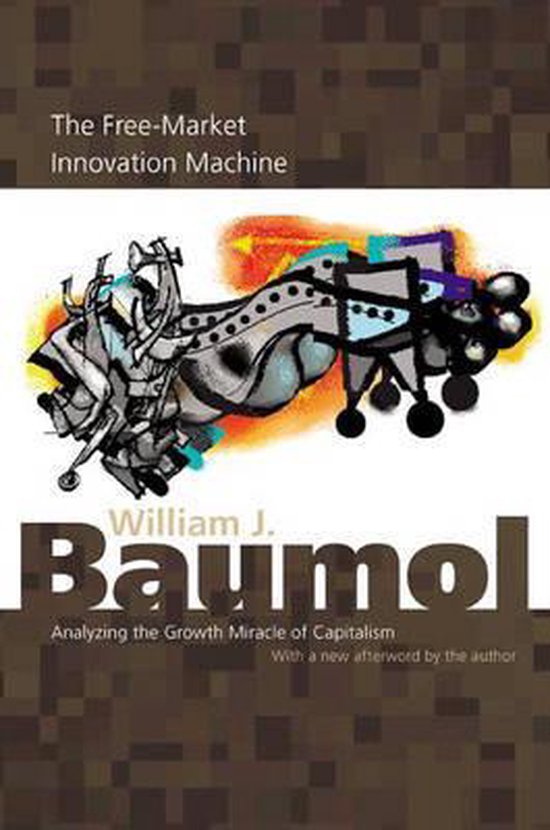De Boeken van Wouter
The Free-Market Innovation Machine
The Free-Market Innovation Machine
Verfügbarkeit für Abholungen konnte nicht geladen werden
Verzending is beschikbaar op maandag en vrijdag
Meestal verzonden binnen 1–4 dagen na bestelling
4 boeken kopen = 3 betalen
Gratis verzending vanaf €25
Titel: The Free-Market Innovation Machine
Schrijver: William J. Baumol
Bindingswijze: Hardcover
EAN: 9780691096155
Conditie: Goed
Let op: Hieronder staat een algemene beschrijving van hoe wij onze conditietypes classificeren. Als u een nauwkeuriger beeld wilt of specifieke vragen heeft, stuur ons dan een bericht en we kijken het graag voor u na.
Conditie-omschrijvingen:
- Als Nieuw: Nauwelijks gebruikssporen, bijna als nieuw.
- Goed: Kan lichte gebruikssporen vertonen, zoals wat verkleuring of een naam op de schutbladen, maar doorgaans geen onderstrepingen of aantekeningen in de tekst.
- Redelijk: Boek in redelijke staat. Kan gebruikssporen vertonen, zoals verkleuring, leesvouwen in de rug, onderstrepingen, aantekeningen, lichte vervuiling aan de randen, ezelsoren of een kromme rug.
- Nieuw: Boek is nieuw.
Beschrijving:
Why has capitalism produced economic growth that so vastly dwarfs the growth record of other economic systems, past and present? Why have living standards in countries from America to Germany to Japan risen exponentially over the past century? William Baumol rejects the conventional view that capitalism benefits society through price competition - that is, products and services become less costly as firms vie for consumers. Where most others have seen this as the driving force behind growth, he sees something different - a compound of systematic innovation activity within the firm, an arms race in which no firm in an innovating industry dares to fall behind the others in new products and processes, and inter-firm collaboration in the creation and use of innovations. While giving price competition due credit, Baumol stresses that large firms use innovation as a prime competitive weapon. However, as he explains it, firms do not wish to risk too much innovation, because it is costly, and can be made obsolete by rival innovation. So firms have split the difference through the sale of technology licenses and participation in technology-sharing compacts that pay huge dividends to the economy as a whole - and thereby made innovation a routine feature of economic life. This process, in Baumol's view, accounts for the unparalleled growth of modern capitalist economies. Drawing on extensive research and years of consulting work for many large global firms, Baumol shows in this original work that the capitalist growth process, at least in societies where the rule of law prevails, comes far closer to the requirements of economic efficiency than is typically understood. Resounding with rare intellectual force, this book marks a milestone in the comprehension of the accomplishments of our free-market economic system - a new understanding that, suggests the author, promises to benefit many countries that lack the advantages of this immense innovation machine.
Share

